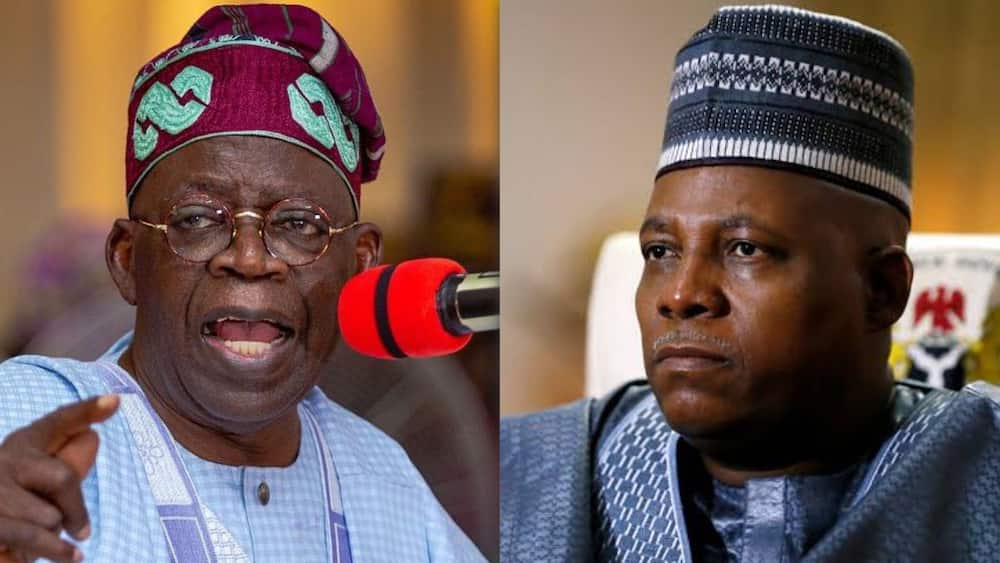By Ade Olu
At no time in the past had it been clearer that most political gladiators in the country have no interest of the country at heart, than now. Happenings within the political space speak volumes of the measure of disdain the political elite have for the peace and unity of Nigeria. Recent events point to the bitter and condemnable truth that an average Nigerian politician is on a desperate search for daily bread and will do anything unthinkable to protect his interest and that of his family.
To start with, it must be established that religion and ethnicity are the two strongest weapons of disunity the nation has known over the decades. Nigeria has succeeded in raising religious bigots and ethnic apologists, who at irregular intervals are unleashed on any identified enemies. At the moment, Nigeria is profusely bleeding out of existence and deserves emergency attention to rescue the sinking boat. The country, despite being diverse in culture and language, has never been as divided as witnessed in the last seven years, no thanks to the administration, which has made the hitherto thin lines of ethnic difference very conspicuous. One sadly calls to mind how a once united North has been balkanized to the point that many Hausas are dissociating themselves from the Fulanis, same goes for people from other ethnic backgrounds.
With endemic insecurity driving the country aground, with several agitations linked to religion and ethnicity from different parts of the country as well as sustained cries of discrimination and marginalization from its nooks and crannies, one expects unanimous efforts towards finding the elusive peace, and that personal interests will be sacrificed in search of national unity. One anticipates that men and women of goodwill will forge common front to redirect the ship of Nigeria to the shore.
Unfortunately, the interests of Nigerian politicians are not the same as national interests. Nothing could be truer in that in a country almost shredded into pieces by fatal ethno-religious rivalries, a country said to be constitutionally secular, politicians have the guts to present Muslim-Muslim presidential ticket? In a country where North-South dichotomy is long entrenched in governance and political relationship, how does one justify the retention of the plum seat of the Presidency in the northern part, where the sitting President hails from? The shenanigans of these elite are clear indications that national peace and unity are not shared concerns among all Nigerians.
Without any intention to campaign for any political party, the demand of patriotism compels one to posit that neither retaining power in the North nor a Muslim-Muslim ticket is capable of guaranteeing peace in a fragile nation as ours. Here lies the truth, while the former presents the North as having greater mastery of political maneuver than the South, the latter decidedly or inadvertently portrays the Christians as second class citizens in the country.
The proponents of Muslim-Muslim tickets have placed their personal ambitions above national good. They now face the onerous task of convincing the adherents of other religions, especially Christians, that good governance is not a function of religion. These are mere rhetoric considering previous and current happenings within the political ecosystem of the nation. The lingering allegation around the planned Islamization of the country makes such joint ticket more suspect. Spirited moves will be needed towards diffusing the minds of those who nurse such fears around the Islamization agenda. Only the result of the presidential election will reveal the success or otherwise of such endeavour.
Retaining the presidential ticket of any party in the North is an affront on the tenets of fairness, equity and balance. Regrettably, members of the APC and PDP have been exchanging views on these critical national issues and one wonders what moral justification those who sponsor Muslim-Muslim ticket have condemning retention of political power in the North beyond 2023, and vice versa. They must remove the specks in their eyes before helping to remove the logs in the eyes of their opponents. They both have moral burden to convince Nigerians to disregard these weighty matters in making their electoral decisions next year. While we wait to have a better understanding of what their manifestos and programmes will look like, one wonders how possible it is to place a super structure on a faulty foundation.
Fairness in the present circumstance is beyond zoning the presidency to the South. It further dictates that it should be micro-zoned to the South-East which has not had a shot at it. History beckons again and it is hoped that fair-minded Nigerians, who are lovers of peace and oneness, will rise above petty ethnic and religious considerations to set the nation on a path of political renewal.
The APC and PDP have presented Nigerians with a dilemma and a safe decision is to avoid them for other parties with more friendly packages. Undoubtedly, debates around these issues will linger until after the elections in 2023, a critical year that will determine the fate of Nigeria. One can only hope for the best for our darling fatherland.
For the umpteenth time, one dares to say that a country, where religion and ethnicity play no influential role in the political sphere, is an ideal one. However, the current mood of the nation is in support of giving consciousness to these dichotomies that have survived decades of our existence as a nation. Such a great ideal should be gradually and mutually pursued by all and sundry. It cannot be forced on the populace, who from practical experiences, have strong reasons to suspect some foul play. It is not a good preaching (campaign) topic at the moment.
Mr Ade Olu, a broadcaster wrote in from Ibadan, Oyo State

